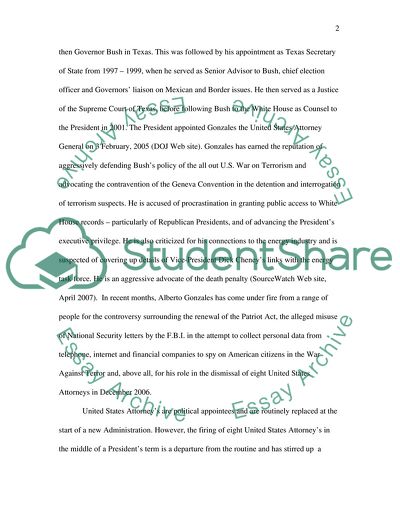Cite this document
(Attorney General Alberto Gonzales: The Ethics Triangle Case Study, n.d.)
Attorney General Alberto Gonzales: The Ethics Triangle Case Study. Retrieved from https://studentshare.org/ethics/1707354-character-review-of-current-us-attorney-general-alberto-gonzales
Attorney General Alberto Gonzales: The Ethics Triangle Case Study. Retrieved from https://studentshare.org/ethics/1707354-character-review-of-current-us-attorney-general-alberto-gonzales
(Attorney General Alberto Gonzales: The Ethics Triangle Case Study)
Attorney General Alberto Gonzales: The Ethics Triangle Case Study. https://studentshare.org/ethics/1707354-character-review-of-current-us-attorney-general-alberto-gonzales.
Attorney General Alberto Gonzales: The Ethics Triangle Case Study. https://studentshare.org/ethics/1707354-character-review-of-current-us-attorney-general-alberto-gonzales.
“Attorney General Alberto Gonzales: The Ethics Triangle Case Study”. https://studentshare.org/ethics/1707354-character-review-of-current-us-attorney-general-alberto-gonzales.


